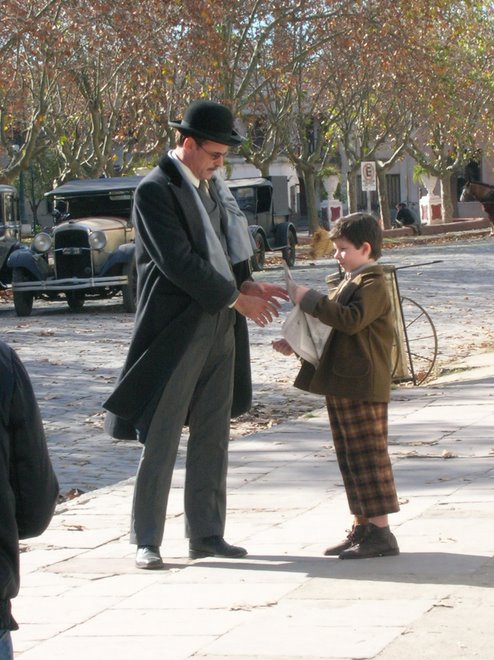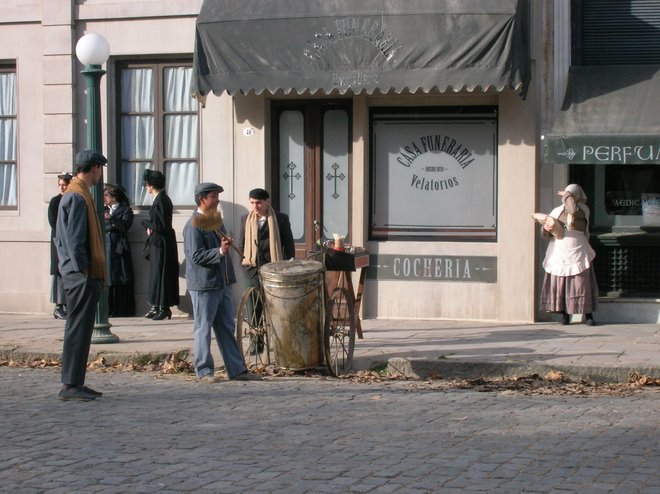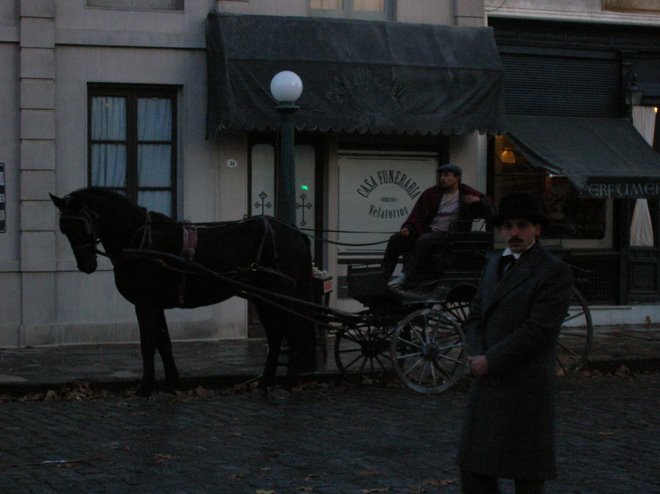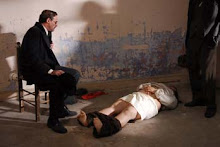The Mud Boy / El niño de barro
By JONATHAN HOLLAND
Posted: Mon., Jul. 9, 2007, 10:44am PT
http://www.variety.com/review/VE1117934114.html?c=31
(Spain - Argentina) A Filmax release (in Spain) of an Adivina Producciones, Iroko Films, Filmax, TVG (Spain)/Patagonik, Pol-Ka (Argentina) production. (International sales: Filmax, Barcelona.) Produced by Susana Maceiras, Julio Fernandez, Carlos Fernandez, Harold Sanchez, Fernando Blanco, Adrian Suar. Executive producer, Juan Vera.
Directed by Jorge Algora.
Screenplay, Christian Busquier, Algora, Hector Carre.
With: Maribel Verdu, Daniel Freire, Chete Lera, Juan Ciancio, Cesar Bordon, Abel Ayala.
A dizzying, potent brew of history, mystery and pederasty, "The Mud Boy" appears to be the product of an overheated imagination but is, in fact, based on, and fairly faithful to, the real-life story of a 10-year-old boy in early 20th century Argentina. The excesses of the story are reined in by intelligent treatment, with thoughtful perfs, fine period atmospherics and a well-achieved sense of dread making up for occasionally clunky direction and loose scripting. Pic has done poor B.O. domestically, but as a superior Spanish stab at a genre item could score at chiller-themed fests.
Debut helmer Jorge Algora smartly opts to filter the horrors of his yarn through the eyes of young Mateo (Juan Ciancio), who lives with his mother Estela (Maribel Verdu) and stepfather, shifty cop Octavio (Cesar Bordon). Octavio has been Estela's partner since saving Mateo's life years before.
Mateo has visions of dead children riding fairground horses: His visions are invariably followed up by the brutal murder of the child.
Detective Petrie (Daniel Freire) is assigned to the case, accompanied by free-thinking psychologist Dr. Soria (Chete Lera). The murders pile up. Octavio, seeking a scapegoat, kills a child pornographer with whom Mateo had an unfortunate encounter. But the murders continue.
Little in the plot sets pic apart, but film taps neatly into contempo fears about child maltreatment and safety in a sensitive and even-handed way, keeping the potential nastiness well under control. Though sometimes plodding, the script wastes no time in getting down to dramatic business and handles its multiple plotlines with skill, though the explanation for Mateo's visions doesn't ring true.
Perfs are fine. Verdu reprises her protective mother-figure role from "Pan's Labyrinth" to good effect, while Freire as the taciturn, troubled Petrie is nicely self-contained. Lera is a fine actor, but is given the impossible task of making Mateo's visions psychologically plausible. Child thesp Ciancio is the very essence of vulnerability, spending most of pic in a moving state of utter terror.
Lenser Suso Bello has opted to infuse the visuals with a light sepia hue to suggest period, which works fine, though Mateo's flashbacks, in grainy black-and-white, reinforce the cliche that in movies, only bad things happen in fairgrounds.
Life in a Buenos Aires barrio a hundred years ago seems to be accurately rendered. Nani Garcia's orchestral score is sometimes effective but over-used, at times intruding on dialogue. A couple of refs to Fritz Lang's "M" are thrown in to keep the buffs alert.
Camera (color), Suso Bello; editor, Rita Romero; music, Nani Garcia; art directors, Juan Lovece, Eduard Valles; sound, Perfecto San Jose. Reviewed at Conde Duque Alberto Aguilera, Madrid, May 24, 2007. Running time: 103 MIN.
Read the full article at:
http://www.variety.com/story.asp?l=story&r=VE1117934114&c=31
© 2007 Variety. Jonathan Holland.








